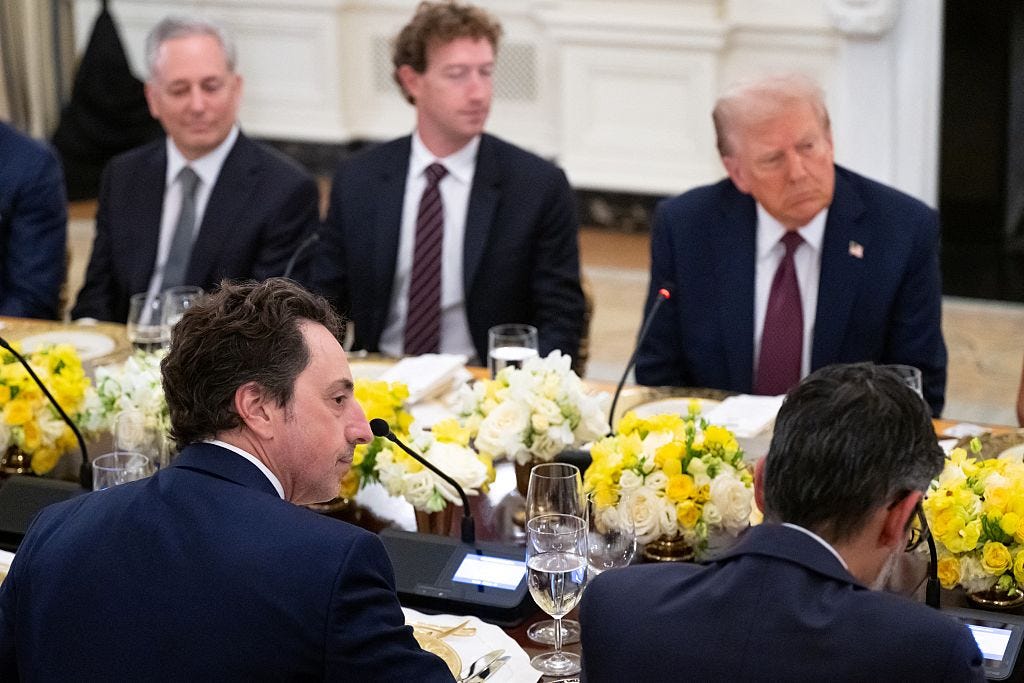Don't be evil
Among the broligarchs, if you’re not at the table -- are you on the menu?
Join us live this afternoon, Tuesday, September 9, at 1:00 p.m. Eastern to talk about billionaires with journalist and author David Gelles. Watch on desktop at The Ink or on a phone or tablet using the Substack app.
Considered as spectacle, this weekend’s White House Big Tech dinner was disturbing enough — a healthy percentage of the richest, most powerf…




